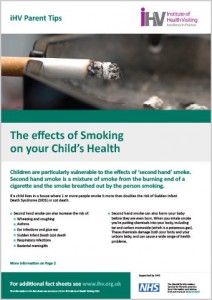Research published today by the University of Newcastle shows that the BabyClear programme, implemented in the north east of England to reduce smoking during pregnancy, has been very successful.
Pregnant women are almost twice as likely to quit smoking if they are supported from their first midwife appointment – and then are more likely to have heavier, healthier babies. Newcastle University researchers evaluated the “BabyClear” programme which follows the National Institute for Health and Care Excellence (NICE) guidance around smoking in pregnancy by screening all pregnant women for smoking using carbon monoxide monitoring.
Dr Cheryll Adams CBE, executive director, iHV, said:
“It is excellent that the pilot BabyClear programme in the North East has been so effective in helping women to stop smoking, yet there is more work to be done. Using this approach across the whole country, we can significantly reduce the number of pregnant women who smoke and, as a result, reduce perinatal mortality and morbidity – so giving more children a better start in life.”
The implementation of the BabyClear programme in the North East was supported by SFAC and Smoking in Pregnancy Challenge Group members Fresh North East.


![By © 2005 by Tomasz Sienicki [user: tsca, mail: tomasz.sienicki at gmail.com] - Photograph by Tomasz Sienicki / Own work, CC BY-SA 3.0, https://commons.wikimedia.org/w/index.php?curid=172810](https://ihv.org.uk/wp-content/uploads/2016/03/Papierosa_1_ubt_0069_1422x948.jpg)


